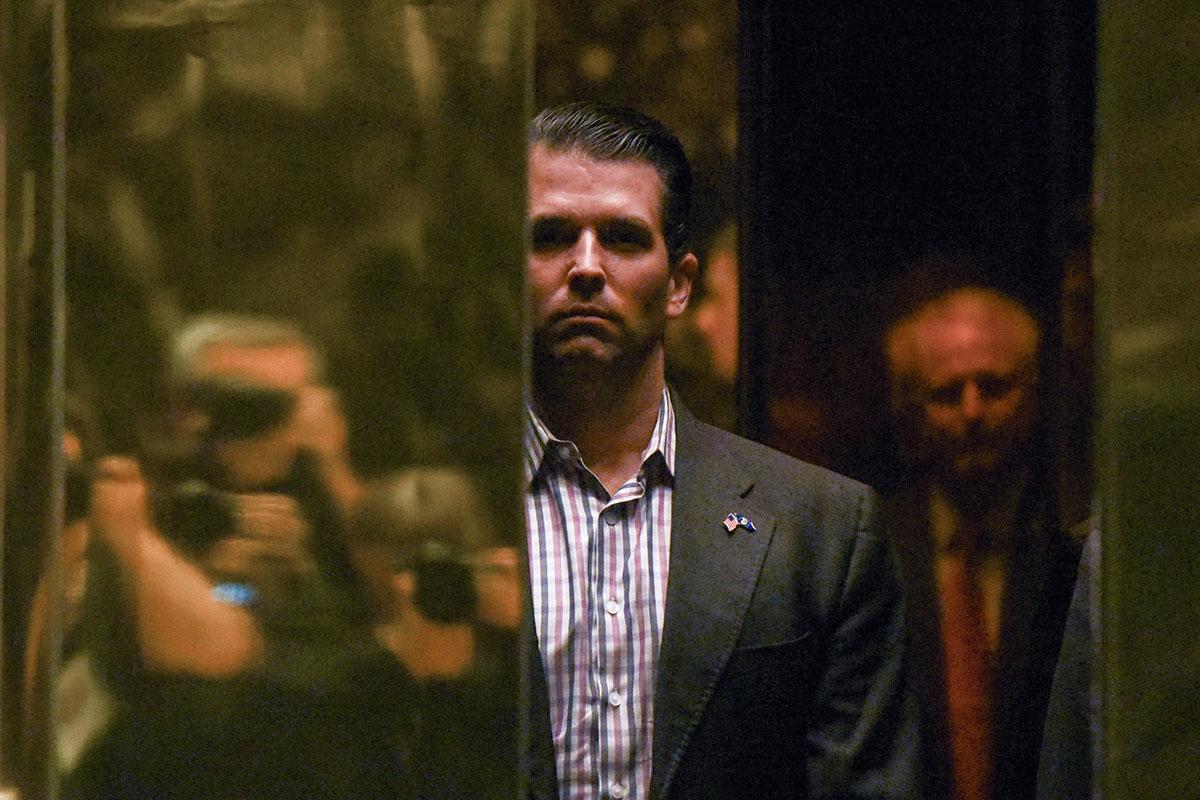Yuri Chaika: The Russian master of 'Kompromat' thought to be behind Donald Trump Jr meeting
Kremlin's prosecutor general has long and storied background in art of spreading damaging information against political rivals

Your support helps us to tell the story
From reproductive rights to climate change to Big Tech, The Independent is on the ground when the story is developing. Whether it's investigating the financials of Elon Musk's pro-Trump PAC or producing our latest documentary, 'The A Word', which shines a light on the American women fighting for reproductive rights, we know how important it is to parse out the facts from the messaging.
At such a critical moment in US history, we need reporters on the ground. Your donation allows us to keep sending journalists to speak to both sides of the story.
The Independent is trusted by Americans across the entire political spectrum. And unlike many other quality news outlets, we choose not to lock Americans out of our reporting and analysis with paywalls. We believe quality journalism should be available to everyone, paid for by those who can afford it.
Your support makes all the difference.The salacious video, of a naked man in bed with two women, was one of the most prominent examples of “kompromat,” the Russian art of spreading damaging information to discredit a rival or an enemy, in recent Russian history.
It was made available to Russian state television in the late 1990s and authenticated in public by Yuri Chaika, Russia’s prosecutor general, who at 66 has a long and storied background in kompromat. Chaika benefited from the video, as it destroyed a predecessor as prosecutor general, Yuri Skuratov, who had been looking into suspicions of corruption by President Boris Yeltsin and his associates.
Chaika is also the man who is widely considered to have been the source of the incriminating information on Hillary Clinton that Donald Trump Jr was promised at a meeting in June last year in Trump Tower with a Russian lawyer and a Russian-American lobbyist. And yet, oddly, the accusations brought to New York fell flat, by the accounts of those present, despite their having originated from such a seasoned master of kompromat.
Donald Trump Jr said in a statement that the lawyer, Natalia Veselnitskaya, had offered him the information but that it “made no sense” and was not “meaningful.”
Veselnitskaya has said that two others at the meeting, the Trump campaign chairman, Paul J. Manafort, and President Donald Trump’s son-in-law, Jared Kushner, paid little attention.
That stands in sharp contrast to the video, which led to the ouster of Skuratov, helped Vladimir Putin establish himself as the successor to Yeltsin and, ultimately, enabled Chaika to ascend to the prosecutor general’s office.
In Russia, said Thomas Rid, a scholar of intelligence history at King’s College London, “there’s an appreciation that information is power, and having information that somebody considers very private information is even more powerful.”
Skuratov has insisted all along that he was not the man in the tape. But Chaika, after becoming acting prosecutor general in 1999, endorsed the video’s authenticity, saying it showed a “legal basis” to open an investigation.
News media coverage in Russia was relentless, with state television going so far as to interview one of the women in the video. “He is a good uncle,” she said, in a final twist of the knife. “I feel sorry for him.”
In the current case, Rob Goldstone, the former British tabloid journalist and music promoter who arranged the Trump Tower meeting, had written in an email to Donald Trump Jr that Veselnitskaya would bring information from Chaika that would be damaging to Clinton.
What that information was is still not known. But at the time, Chaika was trying to push back against a US sanctions law, the Magnitsky Act, in part by trying to discredit an American-born businessman, William J. Browder, who had lobbied for its passage. At least some of the information seemed to concern accusations of tax evasion by prominent Democratic donors involved with Browder.
Chaika made the same accusations in a statement on his website and in documents handed to Representative Dana Rohrabacher, Repuiblican-California, when he was in Moscow. In an interview, Rohrabacher said using the information in opposition research against the Democrats in the presidential campaign had never crossed his mind. “That’s a big zero,” he said.
Whether anything discussed at the Trump Tower meeting was as explosive as that long-ago video remains to be seen. But the Russian prosecutor’s subsequent experience with kompromat has shown that those who live by the sword may die from it — or at least feel the pain.
Chaika benefited enormously from the video, becoming acting prosecutor general after Skuratov was dismissed and then justice minister. He returned to the prosecutor general position in 2006 in another shake-up of the law enforcement and intelligence elite.
But in that capacity, Chaika made the surprising mistake of investigating suspected corruption at the FSB, the successor agency to the KGB, a bit too enthusiastically.
So in 2007, Putin realigned the prosecutorial powers again, giving control of high-profile cases to a separate agency, the Investigative Committee. That created a fierce rival for Chaika — and compromising material started to spill into public view.
In 2011, the committee accused Chaika’s son, Artyom Chaika, of protecting illegal casinos operating in the Moscow region. He was never charged, but the publicity dented his father’s standing.
“Chaika has been masterful, but not every time and in every fight,” Stanislav Belkovsky, a political analyst and founder of the National Strategy Institute, a think tank based in Moscow, said of the prosecutor general’s role in Russia’s kompromat wars.
The New York Times
Join our commenting forum
Join thought-provoking conversations, follow other Independent readers and see their replies
Comments